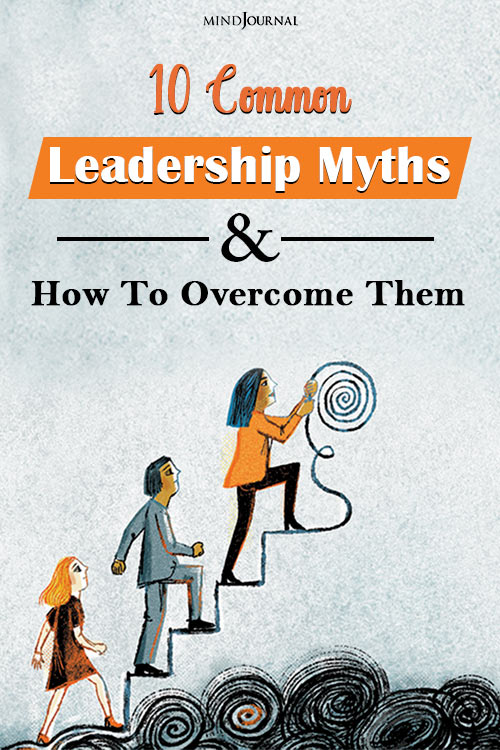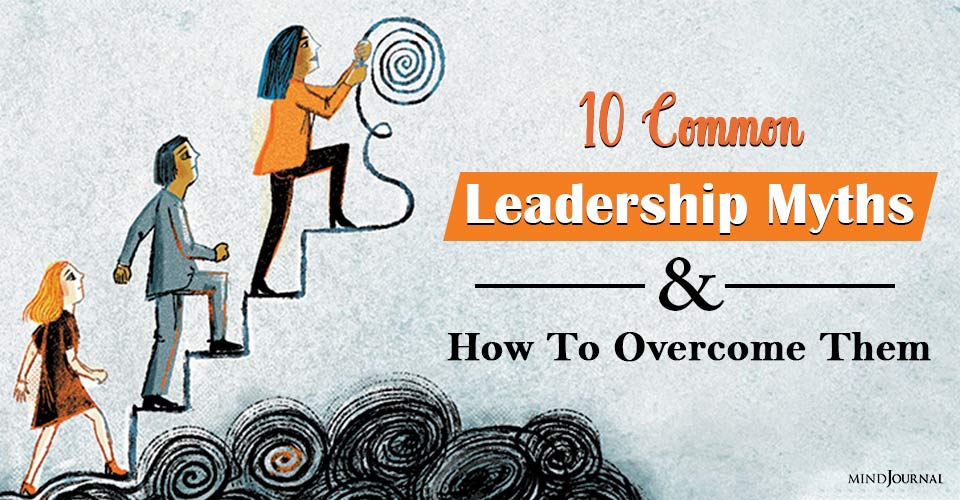Are you an aspiring leader and ready to hold a leadership position? Before you start your journey as a leader, check out common leadership myths and how they can result in undesired outcomes.
Before we start exploring leadership myths, let’s take a moment to examine these three “truth or myth” questions:
Truth or myth? Caffeine and its effects are addictive.
Answer: We can hear it now, “I can’t start my day without it, I’m addicted!” We even feel what some call withdrawal symptoms when we don’t get our morning brew on. This is a myth! By accepted definitions of “addictive,” caffeine is not addictive.
Truth or myth? I need less sleep as I get older.
Answer: Yup, many of us sleep less as we get older and we assume that as we age, our sleep needs decrease. This is a myth! While getting enough sleep is healthier mentally and physically, we need the same amount of sleep regardless of our age.
Truth or myth? Eating at night causes weight gain.
Answer: Many of us refrain from eating past a certain time at night thinking it will lead to weight loss. Some even adopt the age-old practice of eating a big breakfast, a lighter lunch, and an even lighter dinner all in the hopes of losing those pounds. This is a myth! It doesn’t matter when in the day you eat. The USDA and nutrition experts say it’s about how many calories you take in versus how many calories you burn.
Did you know the correct answer to any of the myths above? If not, don’t be surprised. Most of us have come to believe these fabrications.
Why is it that we have these beliefs and carry them with us in our day-to-day lives?
Mythology resonates soundly with us today. We have an uncanny ability to be able to remember specifics about myths far more readily than details about more mundane matters. One of the reasons for this is that it’s much easier to recall information when it’s in the form of a narrative as opposed to in its raw state. Myths make it easy.
Sometimes myths can be of tremendous benefit to us in that we’re able to remember a situation from which we can learn or grow. Captivating stories allow us to make sense of more multifaceted matters by crossing psychological, social, political, or even spiritual lines. But myths have a downside as well. Without challenge, myths become gospel, and we can find ourselves hanging on to thoughts and practices that are simply ineffectual.
Since myths are a comforting way to explain the unexplainable, it makes sense that we’d depend on myths to help us in our leadership journeys. When we take a complex concept like leadership and depend on myths to explain it, we fall into an intellectual and emotional trap that fails to serve those we lead. Tradition, legends, and folklore become our guiding principles and we’re blind to the reality of today’s leadership challenges.
Here are the 10 most common leadership myths and how to overcome them:
1. Aggressive leaders get results
Not always. In fact, oftentimes forceful leaders introduce performance barriers and anger those who they rely on. Being aggressive isn’t a sign of strength, it’s a sign of insecurities and a way to mask the weaker individual within.
It often leads to relying on coercion to get things done, resulting in bare minimum effort and limited results. Meanwhile, loving leaders who work well with others are the ones accomplishing the mission.
Also, read 14 Signs You’re An Emotionally Intelligent Person
2. Leaders are supposed to have the answers
Let’s hope not. The complex world in which we lead is far too volatile for us to have the answers all the time. Anyone who thinks they must have every solution is fooling themselves, but not those they work with.
We all need to depend on others to fill in the gaps, give us insights into what we might be missing, and provide their expertise. Being vulnerable and humble creates a bridge to team members, nurtures trust, and fuels creativity.
3. Leaders don’t have enough time
No one feels like they have enough time and leaders are no different. Time is limited, there are only so many hours in the day. The best leaders make better choices on how they spend their time. They put time aside to increase their self-awareness, build relationships, and care for themselves and their employees.
They invest their time in their employees and know that employees will invest their discretionary energy and time in return.
“Leadership is an action, not a position.” – Donald McGannon
4. Extroverts make better leaders
The main difference between the extrovert and introvert is that extroverts think as they speak and introverts speak after they think. To be truthful, they both bring tremendous advantages and some disadvantages to the workplace.
Neither has the edge over the other where leadership is concerned. Both can exude love, be authentic, and find joy in the workplace.
Also read 7 Imposter Syndrome Myths You Should Know About
5. Leaders don’t make hard decisions based on feelings
We all know that leaders make tough decisions all the time. In fact, it’s one of the things that leaders are paid to do. Often these decisions are based on data, as they should be.
However, when we base our decisions solely on data and metrics and ignore the feelings of those who are impacted by the decisions, we miss a tremendous opportunity to build bridges, trust and get that much-needed buy-in from employees. Emotional intelligence matters.
6. Leaders tell it like it is
One of the more common misconceptions about leadership is that leaders are confident in what they believe — that they take a “no holds barred” approach to telling it like it is. Rarely, if ever, is this the best approach. The way we deliver a message is not the way everyone receives it.
Leaders need social awareness and sensitivity in order to convey their vision in ways that people can understand and be inspired. The best leaders have a connection with their employees and deliver the message in a way that will ultimately be better received.
7. Leaders make mission first
The problem with this often-repeated mantra is that a mission can’t be accomplished without its people. It’s people who will implement the decisions made by leaders and devote their time and energy to mission accomplishment.
They are first. If people don’t come first, mission accomplishment will be mediocre at best. Mission matters of course. It’s the reason that we work in any given organization.
But having a mission first by definition means that everything else comes second. Waving a mission accomplished flag when its people feel undervalued and uncared for is a failed mission.
8. Leaders are highly credentialed and educated
This is perhaps one of the biggest fallacies of leadership. Not only have numerous individuals with well-known college degrees and intellect failed miserably as leaders, but many out there without college degrees have become tremendous leaders.
What matters most is the ability to continue to know one’s self and know the people that work for them. This human connection is what matters most.
Also read How To Stop Living For The Weekends And Create The Life You Want
9. Great leaders are born
This can sometimes be true, but not always. Leaders are mostly made. We all have the capacity to learn to lead, and leadership takes continual work and learning throughout one’s career. We’re not limited in any way by our genetic composition in terms of our ability to influence and inspire others.
10. People will take advantage of a humble leader
This is true only if the leader allows it to happen. Leaders with humility show tremendous character strength and are better able to connect with others and build high-performing, productive teams. A humble leader is also well equipped to address poor performance and inappropriate behavior clearly and directly.
We can learn a lot from mythology and such stories offer us a sense of grounding and comfort. It’s simply a lot easier to depend on things that we assume to be true as opposed to doing the hard work to discover the truth for ourselves. With the time-sensitive, hyper-competitive nature of the workplace, it’s no wonder leadership myths thrive.
What we can’t do is depend on mythology, legend, or stories as substitutes for effective leadership. The role of the leader is far too important to fall into the trap of leaning on unproven theories about what works.
Instead of accepting things at face value, leaders must be lifelong learners and seekers of the truth about who we are, how we relate to others and our impact on our organizations. This demands humble inquiry, discernment, and reflection on the part of leaders everywhere.
Please share this article with anyone who you may think will find it valuable and helpful.
Written by: Zina Sutch Originally appeared on: Addicted2Success Republished with permission









Leave a Reply
You must be logged in to post a comment.